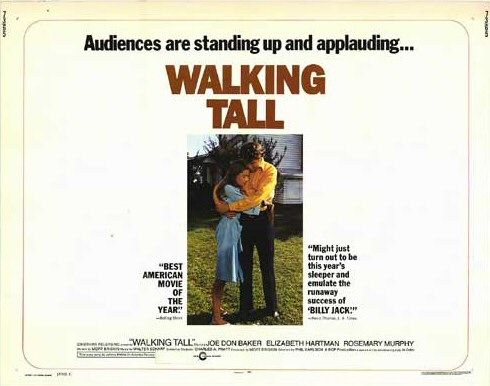Once, Paul “Wrecking” Crewe (Burt Reynolds) was a superstar NFL quarterback. That was until he was caught up in a point-shaving scandal and kicked out of the league. When a drunk Crewe steals his girlfriend’s car, gets into a high-speed police chase, and throws a punch at a cop, he ends up sentenced to 18 months at Citrus State Prison.
The warden of the prison, Rudolph Hazen (Eddie Albert), is a football fanatic who, at first, is excited to have Crewe as an inmate. The prison guards have a semi-pro football game and Hazen wants Crewe to coach the team and help them win a national championship. Though initially reluctant and just wanting to do his time, Crewe relents after witnessing and experiencing the cruelty of the prison system. Crewe forms The Mean Machine, a team made up of prisoners, and agrees to play an exhibition game against the guards.
At first, the members of the Mean Machine are just looking for an excuse to hit the guards without being punished but soon, they realize that they have a chance to win both the game and their dignity. But Hazen is not above blackmailing Crewe to throw the game.
When it comes to understanding the Tao of Burt, The Longest Yard is the place to start. Starting with a car chase and ending with near martyrdom, The Longest Yard is the ultimate Burt Reynolds film. Paul Crewe ranks alongside Deliverance’s Lewis Medlock and Boogie Night‘s Jack Horner as Reynolds’s best performance. Before injuries ended his athletic career, Reynolds was a college football star and, on the prison’s playing field, he holds his own with the large group of former professional football players who were cast to play the guards and the prisoners. The Longest Yard’s climatic football game takes up over an hour of screen time and reportedly, the action was largely improvised during shooting. Unlike most movie football games, the one in The Longest Yard looks and feels like a real game.
The Longest Yard was directed by Robert Aldrich, who specialized in making movies about anti-authoritarians fighting the system. The scenes of Crewe recruiting and training The Mean Machine are very reminiscent of Aldrich’s best-known movie, The Dirty Dozen. With its combination of dark humor, graphic violence, rebellious spirit, and Southern-friend melodrama, The Longest Yard is a movie that could only have worked in the 1970s. The Adam Sandler remake may have made a lot of money at the box office but it still comes nowhere close to matching the original.
For tomorrow’s movie a day, it’s the best film of 2016, which also happens to be about a football player in prison.


